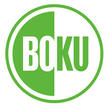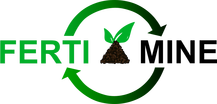FERTI-MINE: From Waste to Fertilizer - nutrient recycling strategy for the future (2014-2019)
The objective of this project was to evaluate technologies for nutrient and carbon recovery from waste materials such as sewage sludge, in order to produce fertilizers and to close the nutrient loops.
I was mainly involved in the testing of products for nutrient bioavailablility. Research papers have been published on P (2017), Si (2019) and B (2019) recycling fertilizers. Another important aspect is to investigate the markets for such products. A conference paper about the use of recycled fertilizers from wastewater in organic agriculture was presented at the Organic World Congress 2017 in New Delhi. This research was the basis for my PhD degree.
The project was accompanied and followed by corporate projects, to evaluate nutrient availability and contaminants in diverse (recycled) fertilizers, working on several nutrients: P, Si, Cu, Zn, Mn, Fe, Mo.
Some background information about this topic is available on the page Nutrients in Society - Sustainable use of limited resources, as well as a short project description on the BOKU Website.
I was mainly involved in the testing of products for nutrient bioavailablility. Research papers have been published on P (2017), Si (2019) and B (2019) recycling fertilizers. Another important aspect is to investigate the markets for such products. A conference paper about the use of recycled fertilizers from wastewater in organic agriculture was presented at the Organic World Congress 2017 in New Delhi. This research was the basis for my PhD degree.
The project was accompanied and followed by corporate projects, to evaluate nutrient availability and contaminants in diverse (recycled) fertilizers, working on several nutrients: P, Si, Cu, Zn, Mn, Fe, Mo.
Some background information about this topic is available on the page Nutrients in Society - Sustainable use of limited resources, as well as a short project description on the BOKU Website.





